We are not here forever. Ageing makes us face up to our mortality. It tells us about more than just the “vanity” of life.
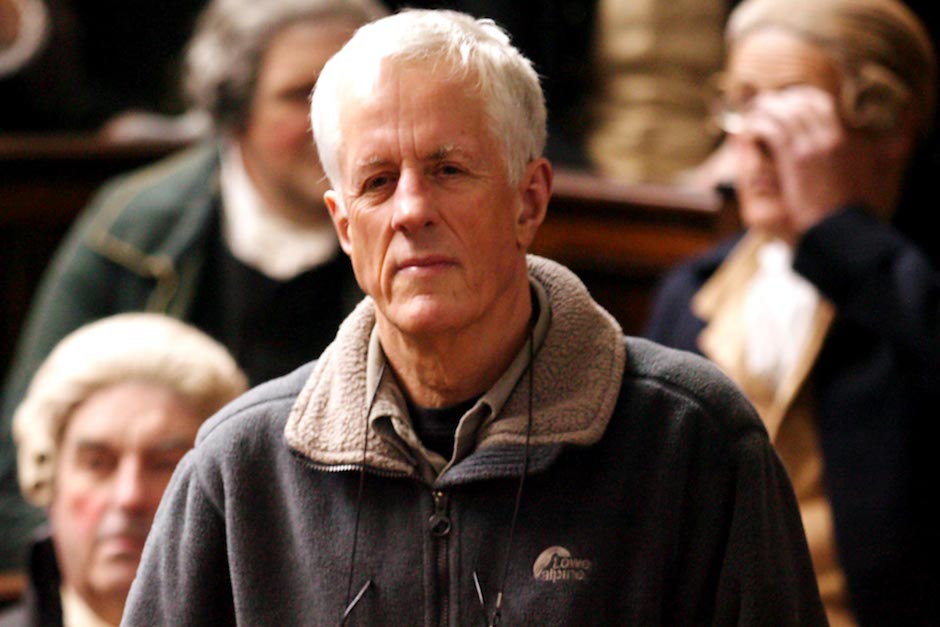 The history of the evangelical abolitionist William Wilberforce was dropped into Apted’s lap by the producer Walden Media, owned by the Christian conservative American billionaire Philip Anschutz.
The history of the evangelical abolitionist William Wilberforce was dropped into Apted’s lap by the producer Walden Media, owned by the Christian conservative American billionaire Philip Anschutz.
There is something inevitable about the passing of time that makes us increasingly aware of our mortality.
Once upon a time, the obituary section would include the names of people that you had never heard of. Then you started to recognize people that had stopped appearing in the news but that you remembered at one point being famous. And now some names are so familiar that it is hard to believe that they have died.
Michael Apted (1941–2021) was old but he was still making films. In their day, I wrote about two of them – Amazing Grace and The Chronicles of Narnia: The Voyage of the Dawn Treader – but now that he is gone I have taken an interest in the documentary series that he filmed at seven-year intervals with a group of fourteen British citizens who were seven years old in 1964 – the year that I went to live in London, just a few months after being born.
The series is called Up – although many people may have heard of it by the name of the drink, Seven Up, because that was the title of the first episode aired on the UK’s second channel, ITV.
The same channel broadcast all the episodes every seven years, except for the one in 1998, which was on the BBC. The 1991 episode was chosen by the late prestigious Chicago critic, Roger Ebert, as “one of the best ten films of all time”. The New York Times has called it “the most profound documentary series in the history of cinema”.
In 1964 Apted was only the assistant to the director, the Canadian Paul Almond, but he was put in charge of picking the fourteen children. The idea was that they should come from different social and economic backgrounds, in order to be able to observe changes in British society over the years.
He gave an interview about it to the interviewer Terry Gross. He explained that he went to schools and said to teachers “bring me your brightest and your best”. But the casting was “pretty arbitrary and very quick”.
They weren’t looking for any particular characteristics or personalities; they were more interested in the children being able to talk in front of the cameras, and in them coming from all types of families, rich, poor, urban, rural, functional and dysfunctional.
The children were asked to talk about their dreams and ambitions. Some of them knew what they wanted out of life, whereas others didn’t have a clue. Apted decided to interview them seven years later to find out what had happened in between. That is how the series was born.
The director told Gross that “it was both very funny and also chilling, showing that, in fact, the class system was very active”. It became the project of his life and, as he said in the interview, “the thing I’m most proud of”, but he was always afraid of spoiling it. He described it as “fragile”.
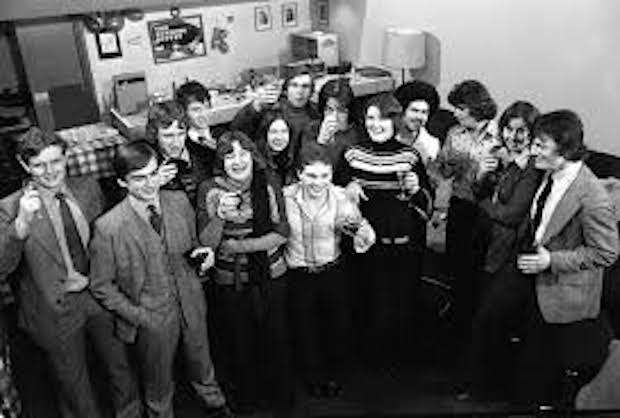
Apted studied Law and History at Cambridge, but in his extraordinary modesty he recognized that he “made mistakes”. He realized that, at first “he judged people if they did not meet his standard of success, failure, or happiness”.
He said, “I tried to play God. I tried to predict what might happen to people and sort of set it all up for that.” He recognized that this was an “embarrassing mistake”. When I heard him talk about himself in these terms, I was captivated by his sincerity and honesty.
Although it is true that throughout his varied career in television, theatre and cinema he didn’t produce any masterpiece to showcase the genius of an undeniable master of cinema, his human vulnerability made him compelling.
He was drawn by the stories of real women, like the story surrounding the death of the crime novelist Agatha Christie (Agatha, 1979) starring the priceless Vanessa Redgrave alongside Dustin Hoffman and Timothy Dalton; that of the turbulent life of the country singer Loretta Lynn, which landed Sissy Spacek with an Oscar for her role as a miner’s daughter, married at the age of 13 to the character played by Tommy Lee Jones (Coal Miner’s Daughter, 1980); or that of the conservationist Dian Fossey – played by Sigourney Weaver – murdered when she was investigating the behaviour of gorillas in Rwanda (Gorillas in the Mist, 1998).
At his death, many people only remember his “day job” film in the James Bond series, The World is not Enough (1999) with Pierce Brosnan. However, I much preferred his thriller, written by Dennis Potter and based on the novel by Martin Cruz Smith, Gorky Park (1983) with William Hurt, Lee Marvin, Brian Dennehy and the fabulous Joanna Pacula.
Together with William Nicholson – the author of the story of C.S. Lewis’s marriage, Shadowlands – he made Nell (1994), starring Jodie Foster as a girl brought up in an isolated cabin, alongside the real-life couple Liam Neeson and his tragically deceased wife, Natasha Richardson.
Throughout his career he worked with high-profile actors and even became President of the Directors Guild of America in the 2000s. He directed episodes in series such as Rome, Ray Donovan and Masters of Sex.
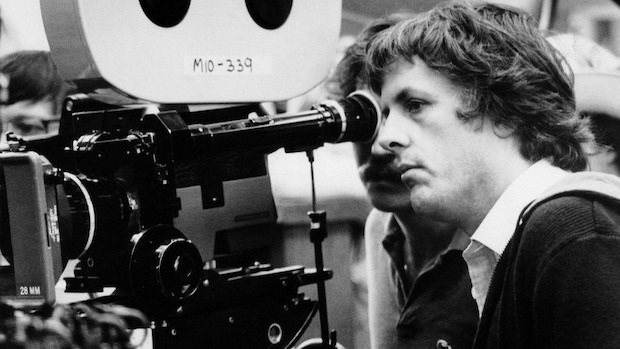
Although he worked in theatre for British television in the 1970s, his most reputed work continues to be in the documentary genre. He was not only interested in sociological subjects, but also in the artistic.
He directed the film of Sting’s first solo tour after Police, Bring on the Night (1985), for which he was awarded a Grammy. He made another feature film about the creative inspiration of various artists, including David Bowie and Roy Lichtenstein. But none of that work is comparable with the Up series.
The premise of the documentary has, of course, been copied in a number of countries in television and film. It even makes an appearance in an episode of The Simpsons. It is the inspiration of films like Boyhood (2014) by Richard Linklater, which was filmed over 12 years with the same actors starting when they were children.
What I find interesting, is that it starts off with a socio-political agenda and then becomes a portrait of human nature with all the complexities of life.
Apted said that he realized this when the participants reached the age of 21. It was then that the series was launched internationally, and when they reached the age of 28 he asked that they be paid, which they had not been until then.
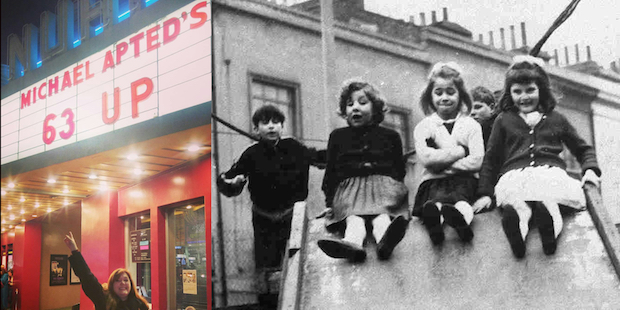
When Gross interviewed him, he had just done the episode in which the participants were 56. Apted observed that the participants were happier than he was in his personal life – he was married three times.
He was “ambitious” in his career and confessed that he wasn’t “the husband and father that he should have been” – he had four children but one died of cancer. Although he was generous in helping the participants when they needed money or somewhere to stay in the United States, they say that he was always respectful about what they wanted to talk about or not.
He always edited out the things that they did not want to include, but some discrepancies remained, such as when he confronted one of them about his racist opinions at the age of 56. Another suffered from serious depression and was unreachable when he was 28, but was found again at the age of 42.
There is no doubt that Apted would worry about them and that he quickly gave up pretending that he was objective in his relationship with them.
The fact that in recent years he has made various films with a Christian inspiration, such as Amazing Grace (2006), Chronicles of Narnia (2010), and Hallelujah (2011), makes one wonder if he shared the beliefs represented by his subject matter.
The story of the abolitionist evangelical William Wilberforce, came from the Walden Media film distributor, which is owned by Christian conservative American billionaire Philip Anschutz.
Apted rejected the first script sent to him because he considered that the biopic was too conventional and placed “too much emphasis on religion”. Before accepting it, he had it rewritten to draw more on the political aspects of the story.
Nevertheless, Steven Knights script is clear about Wilberforce’s conversion and his relationship with preacher John Newton, the former slaver who wrote the lyrics of the song Amazing Grace – starring the now deceased Irish actor Albert Finney. One of the producers was Walden Media, the other was Terence Malick, the director of The Tree of Life (2011) and The Thin Red Line (1998), who is now known to be a Christian.
In an interview on the ChristianAnswers.Net “Spotlight” website, Apted said “I know he is a religious man. I think he was interested in that [Christian] side of him [Wilberforce] … I get the feeling that he’s a very spiritual man – and a Christian”.
This is an important testimony since Malick never talks about his faith, as he never gives interviews. But what of Apted’s spirituality?
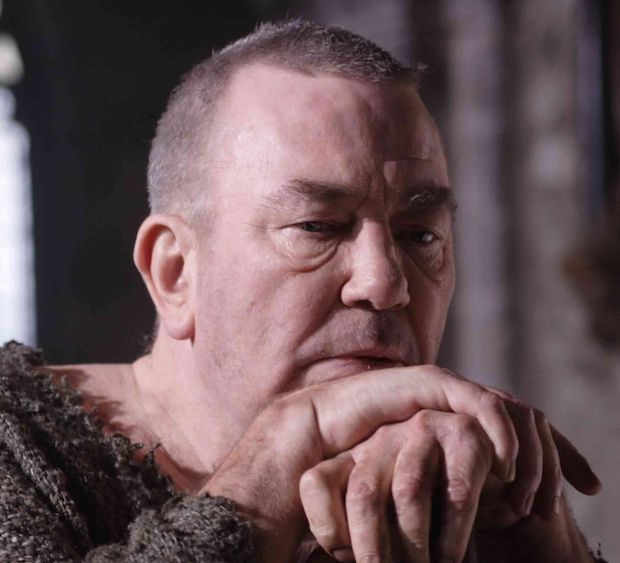
In an interview with the Irish Times he said, “I am not religious and I am not very interested in Christianity. But I wanted to persuade Walden that I wasn’t going to secularise the film. I hope I walked the tightrope, so that it didn't veer over into a faith-based film, but still touched upon his beliefs”.
In the “Spotlight” interview, Apted explained that he had a Christian upbringing as his father was “religious”, although his mother wasn’t. In fact, his brother ended up becoming a church minister – possibly Anglican, although he doesn’t specify.
Walden Media also produced the Narnia series, for which Apted was again contacted: “I suppose at the heart of every evangelical there is a desire to proselytise. But you look at Narnia and it is quite clear they don’t force the issue” (Irish times).
What I find fascinating in Apted’s work is the way in which he captures the passing of time, which can be seen even in the life of Wilberforce, consumed by his illness, despondency and his addiction to laudanum.
There is a palpable feeling of failure in the way that he enters into a fight that seems increasingly futile: a mission impossible, humanly speaking. I think that, had it been directed by a Christian, that agony would not have been felt in the same way.
It is in that humanity, with its vulnerability, that the appeal of Wilberforce’s faith lies. It is God’s power made perfect in weakness (2 Corinthians 12:9). And it takes on its full meaning in the title of Newton’s hymn Amazing Grace.
A series like Up gives a sense of the passage of time. First of all, this is physical: the years are not forgiving and there is a point at which one does not even recognize one’s own body. Each new episode announces an inevitable end. That end came for its director, before its subjects.
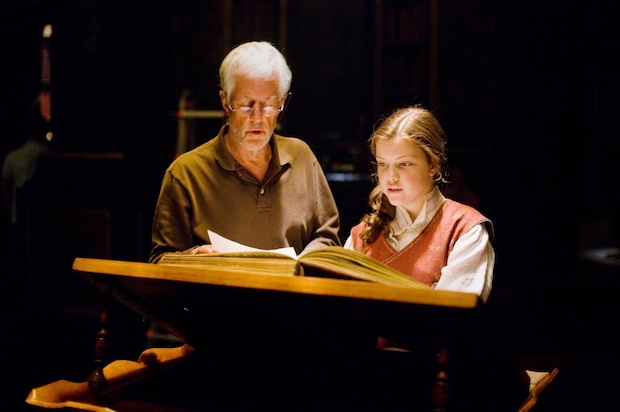
We are not here forever. Ageing makes us face up to our mortality. It shows us not only the “vanity” of life, of which the book of Ecclesiastes talks, but also the ephemeral and brief nature of the Hebrew term. This book of biblical wisdom is not an existential treatise, but a reminder of the brevity of our existence, slipping through our fingers…
We can live in the present taking a Carpe diem attitude, which denies the importance of our actions, or we can accept the responsibility of “counting our days” as the Bible exhorts us to do.
What we do with our life has consequences. Death is the “moment of reckoning”. Like Apted, we may regret our mistakes, but in faith we have the hope that our life is more than what we have achieved.
God’s amazing grace takes us as we are, through the justice of another, Jesus Christ. It is only in this way that we can face up to our failures.

Las opiniones vertidas por nuestros colaboradores se realizan a nivel personal, pudiendo coincidir o no con la postura de la dirección de Protestante Digital.
Si quieres comentar o